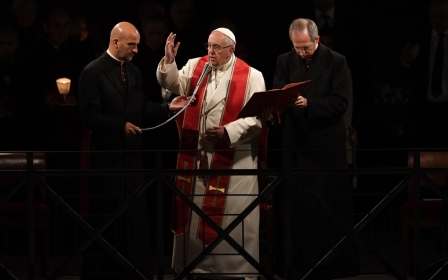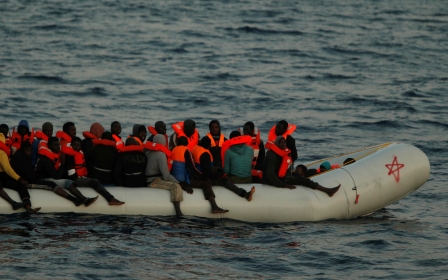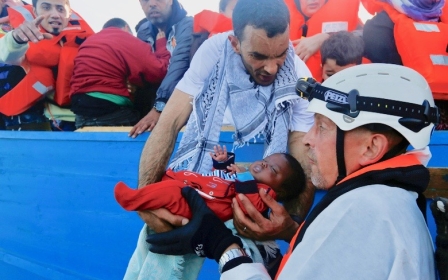Nearly 9,000 migrants rescued in Mediterranean over weekend
Nearly 9,000 mainly African migrants were rescued in the Mediterranean this past long weekend, after setting out from Libya on unseaworthy boats to try to reach Europe, UN aid agencies said on Tuesday.
"This was an overwhelming search and rescue operation by all sides involved," Babar Baloch, spokesman of the United Nations High Commissioner for Refugees (UNHCR), told a news briefing.
International Organisation for Migration (IOM) spokesman Leonard Doyle said that better spring weather had encouraged smugglers to take migrants out of detention centres in Libya.
At least 900 migrants have died or have gone missing while attempting to reach Europe by sea so far this year, while 36,000 have been rescued, against 24,000 last year, Doyle said.
Some 36,000 migrants have been rescued, against 24,000 at this time last year, he said.
The migrants, many from Nigeria and Senegal with some from Bangladesh, are among an estimated 20,000 held by criminal gangs in irregular detention centres in Libya, the International Organisation for Migration said.
On release, they pay to board the overcrowded boats, often just inflated rubber vessels that could not cross the Mediterranean, in the hope of starting a new life in Europe.
Libyan fishermen found the bodies of 28 migrants on Tuesday who appeared to have died of thirst and hunger after their boat broke down off the coast of Sabratha city, a ministry of interior official said on Tuesday.
Interior Ministry security unit commander Ahmaida Khalifa Amsalam told Reuters the 28 migrants, including four women, had been found after sunset by the fishermen who towed the vessel to shore. The victims were buried together in a cemetery for migrants, he said.
"It is obvious that better spring weather has encouraged smugglers to take people from their detention centres," said IOM spokesman Leonard Doyle.
"The smugglers have clearly taken them to sea and pushed them out in the hope and belief that they would be rescued."
Middle East Eye propose une couverture et une analyse indépendantes et incomparables du Moyen-Orient, de l’Afrique du Nord et d’autres régions du monde. Pour en savoir plus sur la reprise de ce contenu et les frais qui s’appliquent, veuillez remplir ce formulaire [en anglais]. Pour en savoir plus sur MEE, cliquez ici [en anglais].




